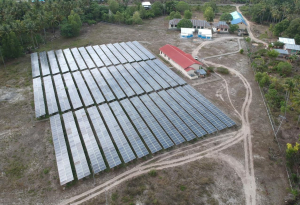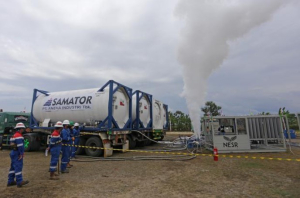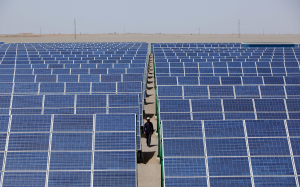PLN to continuously develop community-based biomass ecosystem
Indonesia state power utility PT PLN is committed to continuously support the government's efforts to reduce carbon emissions and increase economic growth through support for clean energy supply, with biomass energy ecosystem is key in encouraging these efforts.
Member of the House of Representatives (DPR), Eddy Soeparno, said that Indonesia, which targets economic growth between 7-8 percent, certainly requires high energy supply support. He, therefore, sees the importance of a national energy ecosystem that relies on diverse and sustainable energy sources, one of which is biomass.
He said that in order to support this effort, the House and the government have signed a Government Regulation on the National Energy Policy (RPP KEN) in which one of the contents is related to increasing the utilization of biomass or biofuels . This aims to develop alternative energy sources that are more environmentally friendly.
“We have the ability to develop biomass, biofuel. This source can come from energy plantation forests ,” Eddy said in his presentation at the Indonesian Renewable Energy Society (METI) Green Talk entitled ‘Strategies for Assuring Raw Material Supply and Improving the Economy for Biomass Power Plants (PLTBm)’ on Monday, September 30, 2024.
He added that in the RPP KEN , the utilization of biofuel must be done by considering balance, energy security, and food security. Through the right process, this effort will bring a sustainable circular economy for the community, including the environment.
“We must mobilize this circular economy. And this requires assistance, support from all relevant stakeholders, including METI,” he said in a statement as quoted on Thursday, October 3, 2024.
Meanwhile, Coordinator for Bioenergy Investment and Cooperation at the Directorate General of New Renewable Energy and Energy Conservation (EBTKE) of the Ministry of Energy and Mineral Resources (ESDM), Trois Dilisusendi explained that the Government strongly supports the PLN-METI initiative to continue to increase the utilization of new renewable energy (EBT), especially biomass. The potential of biomass, especially for the electricity sector or PLTBm is quite large, reaching 57 gigawatts (GW).
“We really understand that bioenergy is a part of the energy world that can indeed be said to be the most complete. Why? Because bioenergy can replace all fossil energy. Then the sector (replaced) can be complete, can be electricity, can be as a bioenergy generator, can be for transportation to replace fuel,” he explained.
PLN President Director Darmawan Prasodjo said that the company continues to be committed to supporting the Government in reducing carbon emissions, especially in the electricity sector. One of them is by building a reliable biomass ecosystem to supply power plant needs.
“PLN builds a biomass ecosystem based on people's economy. In this case we collaborate with the community, local government and related policy makers by utilizing critical lands to supply biomass with an integrated agricultural system,” Darmawan said.
Darmawan explained, until the 3rd quarter of 2024, PLN has utilized 3 million tons of biomass in the co-firing program for 46 Steam Power Plants (PLTU) and succeeded in reducing carbon emissions by 3.2 million tons of CO2e. This biomass utilization also provides economic value to the community of up to Rp2 trillion per year and involves as many as 250 thousand people.
“The amount of biomass utilization will continue to be increased to 10 million tons in 2025 to meet the biomass needs of 52 PLTUs owned by PLN,” he added.
Wiluyo Kusdwiharto, Chairman of METI and Director of Project Management and New and Renewable Energy at PLN, explained that his party has collaborated with state-owned enterprises and the private sector to develop vacant land for energy crops. In addition, it also encourages the utilization of waste as biomass for power generation.
Wiluyo also invited all interested parties to collaborate together. Thus, a solid ecosystem can be formed to be able to utilize the huge potential of biomass in the country.
“Biomass is a very abundant potential in Indonesia and is one of the energy defense forces. Because the material from biomass has many benefits, it is only a matter of how we utilize it,” Wiluyo concluded.
Tag
Already have an account? Sign In
-
Start reading
Freemium
-
Monthly Subscription
30% OFF$26.03
$37.19/MonthCancel anytime
This offer is open to all new subscribers!
Subscribe now -
Yearly Subscription
33% OFF$228.13
$340.5/YearCancel anytime
This offer is open to all new subscribers!
Subscribe now






